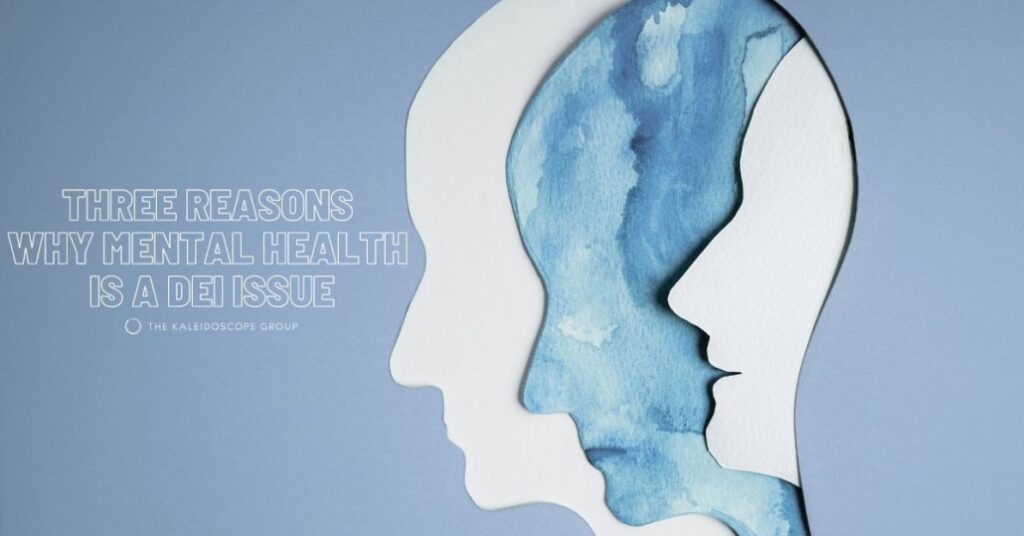Three Reasons Why Mental Health is a DEI Issue
May 9, 2022

This month marks Mental Health Awareness Month in several countries around the world. It is an important opportunity for employers, community organizations, and governments to acknowledge and address the reality facing those living with mental illness and to advocate and educate for better mental health for all.
However, the reality is that we should be thinking about mental health throughout the year when it comes to diversity, equity, and inclusion. Here are three inter-related reasons why mental health is a diversity, equity, and inclusion (DEI) issue.
1. Overcoming stigma
When you talk about dimensions of difference within your organization, do you think about mental health? Often people living with mental illness find it hard to share that information with their employer and request accommodations. There is still a stigma associated with mental illness – in some cultures around the world it is simply not talked about at all, and even in more open cultures, there is often deep shame associated with it.
To create a culture where those struggling to cope may find it easier to talk about their concerns, training and equipping managers and peers to support others and navigate these conversations must be a priority. Mental illness also needs to be part of any employee wellbeing initiative and considered within your disability strategy.
How does the culture of your organization support those with mental health conditions?
2. Mental health and minority identities
According to the World Health Organization, during the first year of the pandemic, there was an increase of 25% in the prevalence of anxiety and depression globally. Women, young people, and those living with pre-existing physical conditions were particularly vulnerable.
We also know that there are mental health implications for minority groups whose identity is socially stigmatized in society. This may be because of cultural identity, race, ethnicity, or sexuality. For example, the LGBTQ+ Community are exposed to chronic stressors because their sexuality, gender, and bodily diversity are socially stigmatized. This may mean that they do not feel safe being openly out at work which adds a further level of stress by masking their identity. They are also more likely to experience discrimination, social exclusion, harassment, and physical violence, all of which negatively impact their mental wellbeing.
Microaggressions, lack of representation, unconscious bias, and other stressors can all have an impact on an individual’s mental wellbeing.
Being committed to DEI means ensuring that employees have access to the support they need from peers, leadership, support services, and health providers. It also means ensuring that these support systems have the skills, experience, and expertise to respond to the unique needs of those who are often marginalized or in the minority in your organization or community.
Please click here if you would like to learn more about supporting your LGBTQ+ employees.
3. Creating a culture that promotes better mental health
How does DEI support good mental health? According to research led by Anna Sutton at the University of Waikato in New Zealand, authenticity at work is linked to wellbeing and employee engagement, although this varies with national culture with more individualized cultures finding a higher impact. Encouraging and enabling individuals to share their identity and to acknowledge and value their unique differences boosts both mental wellbeing and overall engagement at work.
At The Kaleidoscope Group, we believe that it is possible to create workplaces where people can be authentic, where their wellbeing and mental health can be supported, and where everyone can contribute and participate. Which also correlates to the importance of psychological safety in the workplace.


